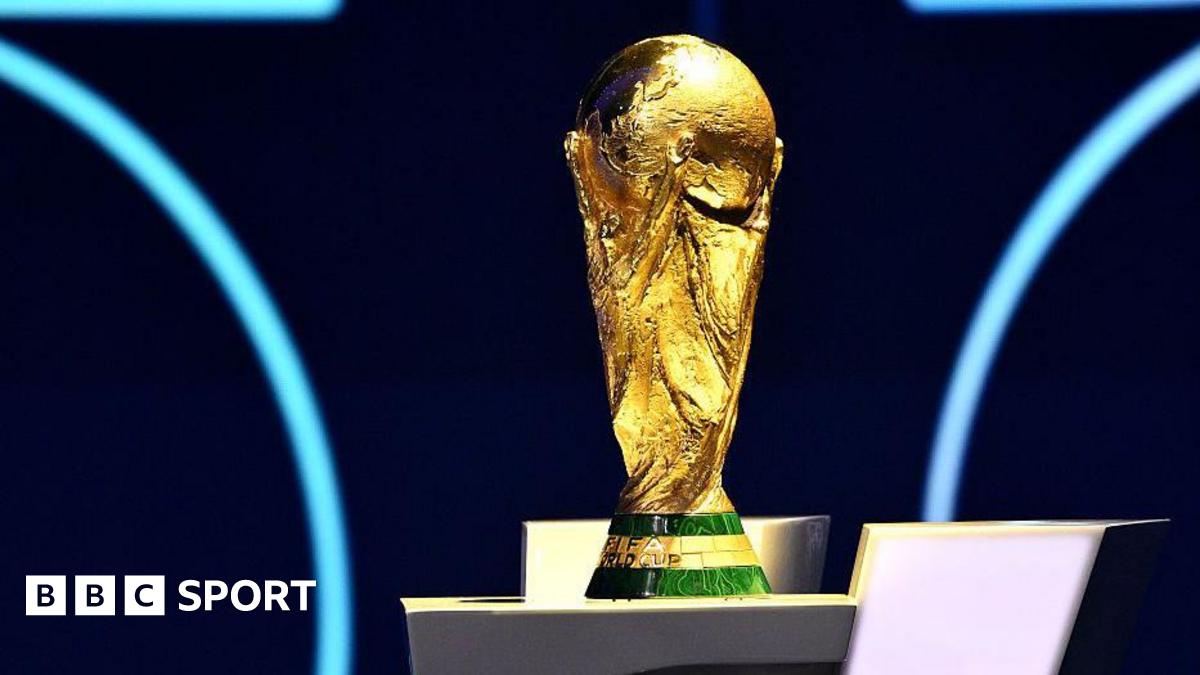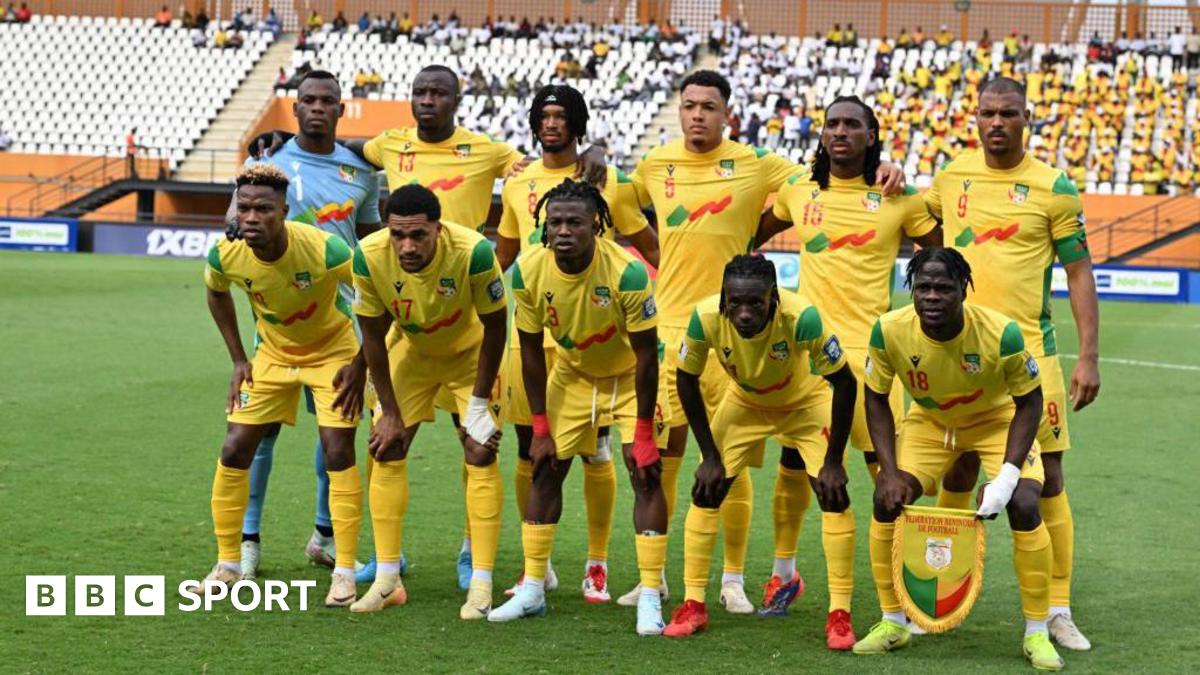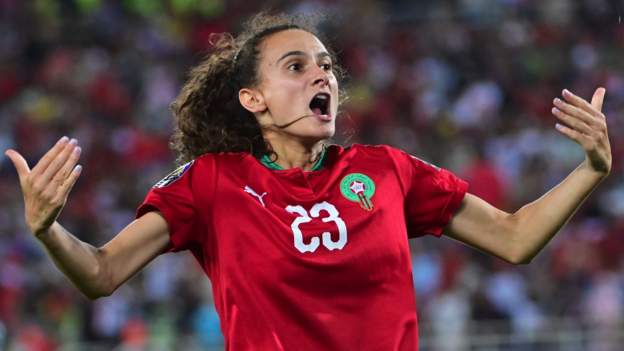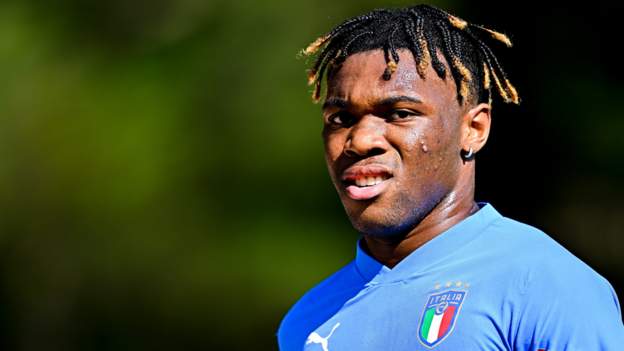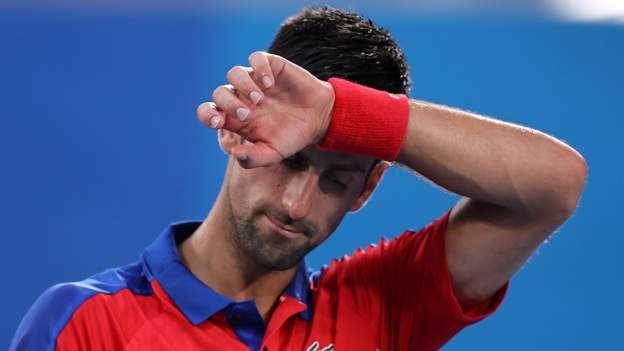Forcing clubs wishing to participate in men’s continental competitions in Africa to have a women’s team will boost the development of the women’s game, according to a Kaizer Chiefs official Jessica Motaung.
The Confederation of African Football (Caf) decided to change its rules in 2021, but some clubs have left it late to make a decision on how to add a women’s side to their roster as new regulations come into force for the 2022-23 campaign.
South African outfit Chiefs are not competing in continental competition this season, but are now trying to create a women’s team regardless.
“The club licensing process which makes it mandatory to have a women’s team puts the women’s game on the agenda,” Motaung, Chiefs’ marketing and commercial director, told BBC Sport Africa
“That’s important because it hasn’t been on the agenda before. It’s making clubs sit down and notice the fact that they now have to put a structure in place and ensure that the facilities are in place.
“Kaizer Chiefs currently doesn’t have a women’s team, but we’ve put together our strategy and we’re excited about it because it’s something we also want to do properly.
“We’ve taken a long-term view. It can’t be just because it’s an enforcement, but for us to ensure that we build young women’s talent and showcase them through the Chiefs brand. I’m quite excited about that, and looking forward to engaging new sponsors, and really getting into the marketplace with something very significant.”
The preliminary draws for the African Champions League and the second-tier Caf Confederation Cup took place last week, but were eventually overshadowed by the launch of the new Africa Super League which is scheduled to begin in 2023-24.
A member of Caf’s women’s football standing committee, Motaung believes the directive from the continent’s governing body will challenge clubs across Africa and also in her native South Africa, home to the reigning continental champions Mamelodi Sundowns Ladies.
She insists teams will be monitored to ensure consistency and prevent clubs from cutting corners.
“I have seen clubs that are buying status to make sure that they have a women’s team. So it is clearly starting to bear fruit,” she added.
Last month, fellow South African side Royal AM – who are competing in this season’s Confederation Cup – bought Bloemfontein Celtic Ladies FC in a bid to be prepared for the new rules for the forthcoming season.
“It’s the monitoring and working together with the teams to make sure that the quality is maintained, and all the various things are put in place.
“Caf and Fifa are very clear about making sure that there’s consistency. I think football federations must also be honest – we can’t be starting and stopping teams, so it’s something that leagues also need to manage quite seriously.
“When they say you can’t participate in key tournaments because of a lack of women’s team, structure and professionalism, then the federations and clubs are fully aware of the seriousness.”
Africa looks to ride Wafcon wave
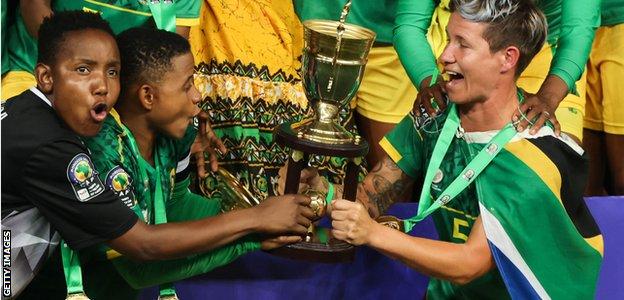
This year’s Women’s Africa Cup of Nations (Wafcon) has raised the stakes for women’s football and Motaung – the daughter of Kaizer Chiefs chairman and founder Kaizer Motaung – says the continent must capitalise on its success.
Expanded to 12 teams and with increased prize money from Caf, the tournament saw record crowds for women’s matches and culminated with South Africa lifting the trophy for the first time.
The hopes are now that the women’s game can capitalise on that exposure and popularity, which included record crowds for matches in Morocco.
“Women’s football has a major impact socially, what it does in changing the lives of young women across the continent,” said Motaung.
“Look at the attendances at the Wafcon. We’ve gone over 45,000 and 50,000 fans, big attendances which are going to help build the brand.
“Football has a key role in changing our society and at the same time, there will be a lot more creativity around the resources that you’re looking at. It’s about working with each other, to make sure that that gets done and that the women teams are playing in significant tournaments.
“We are gradually seeing some progress in places like Morocco, in the Cosafa region, in South Africa and in other territories where there is a key focus.”
Back in November, Mamelodi Sundowns beat Hasaacas Ladies of Ghana 2-0 to claim the first ever Women’s African Champions League title in Cairo.
By virtue of their affiliation with world governing body Fifa and an implicit agreement to abide by the body’s rules on the development of women’s football, each of Caf’s 54 member associations qualify for grants and financial assistance from the Zurich-based body.
Motaung is confident that more investment in women’s football will provide a strong impact on society at large.
“Investment means you’re getting a breed of young women who are educated with degrees, but also creating an environment where they’re showcasing their talents,” she said.
“They are now being able to really learn the game more extensively.
“It’s also changing the support base, because it’s bringing the entire family back to football again, which I think is very important. A woman is now inspiring not only another woman, but she’s inspiring her sons to play or other family members to participate.
“What it does is also take our young girls away from environments that are not positive and bring them into something that teaches them a lot of team dynamics, about their own skills. I think it has a lot to do and a significant role to play in society.”






